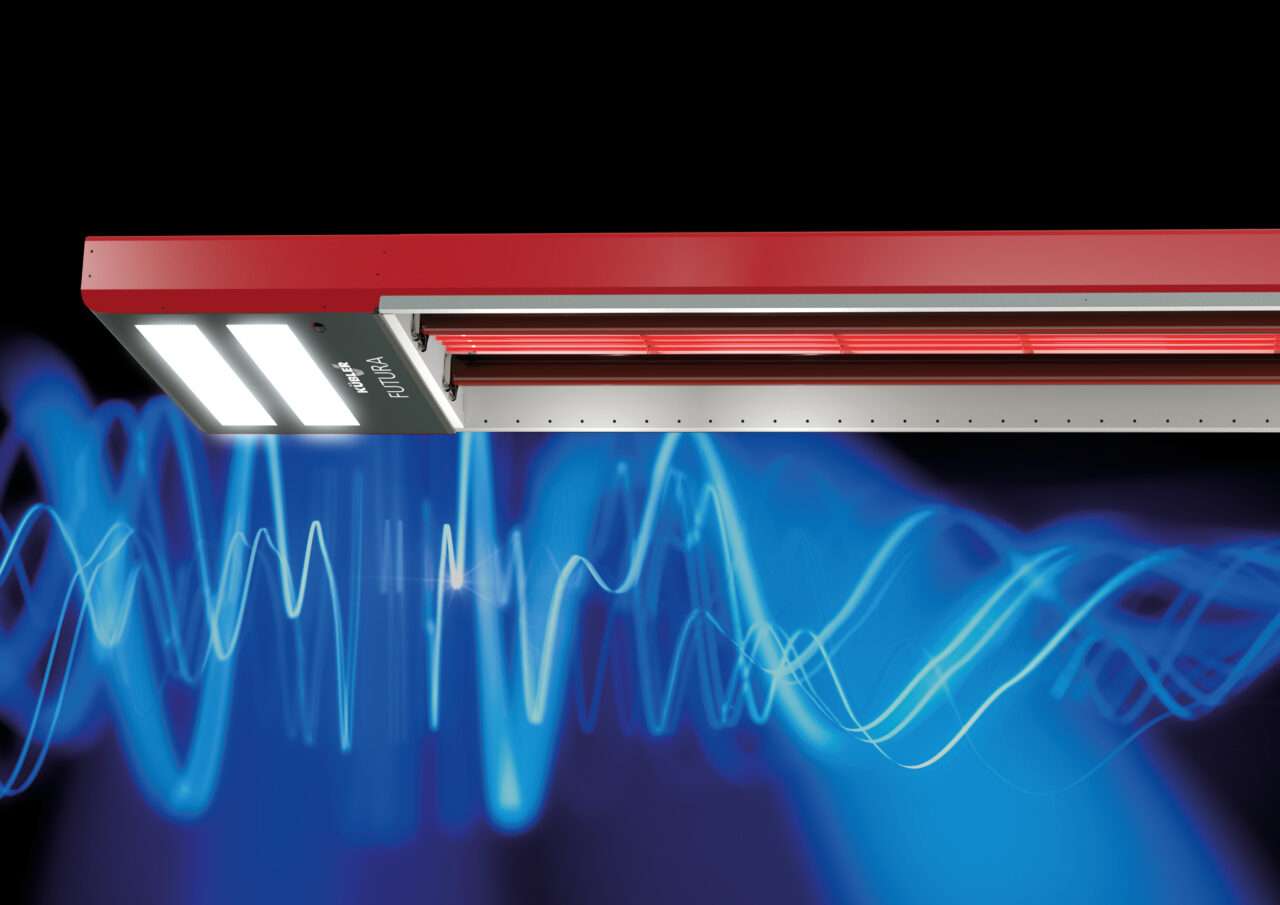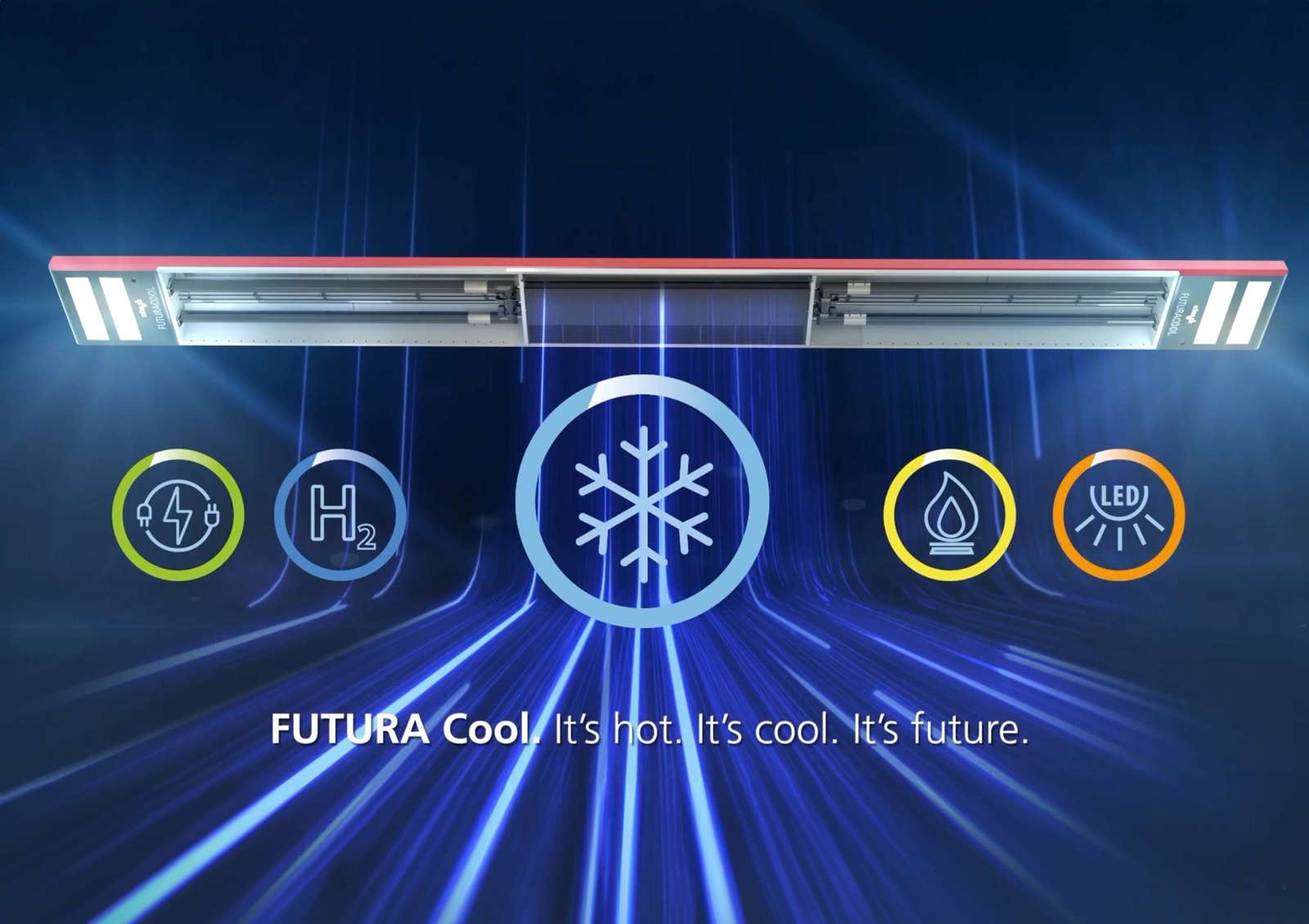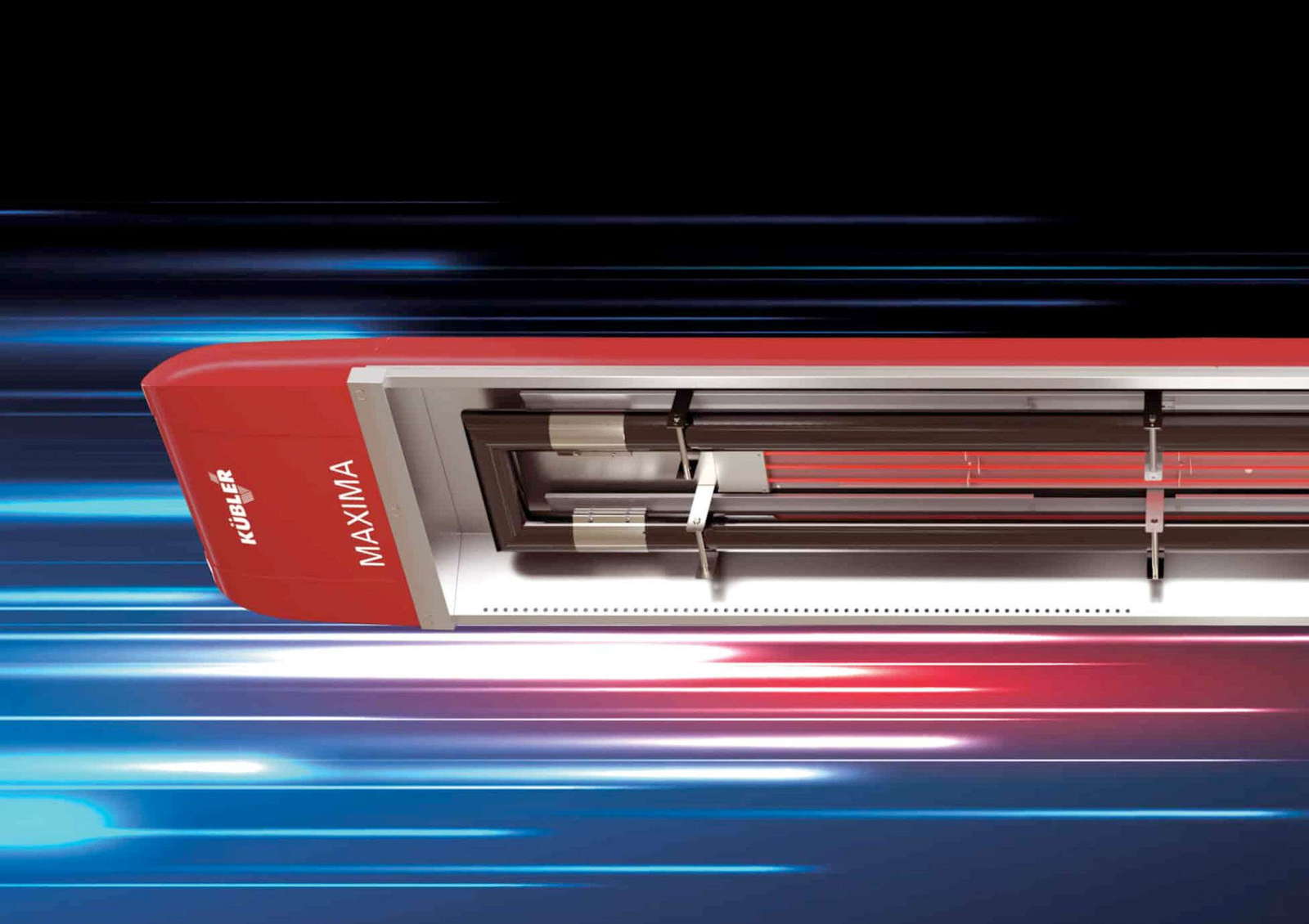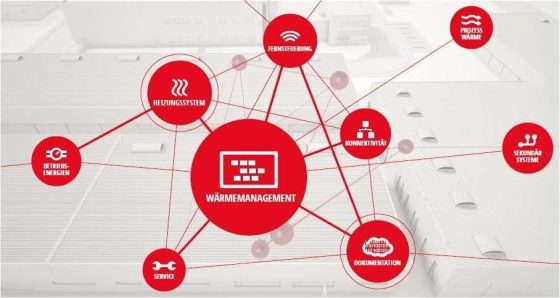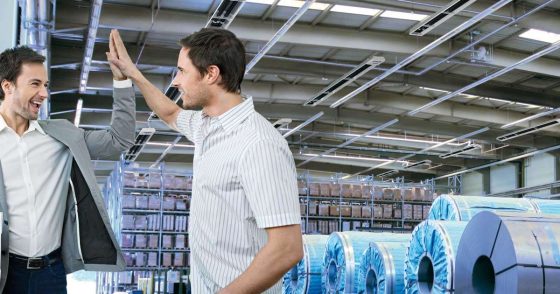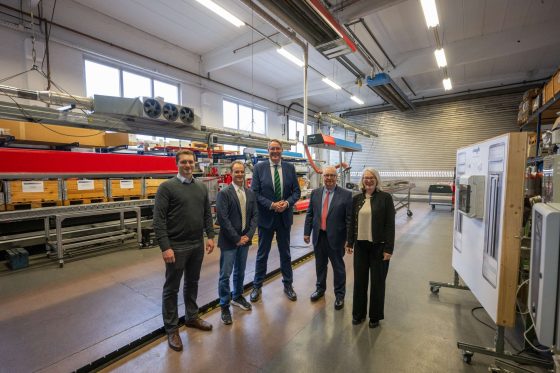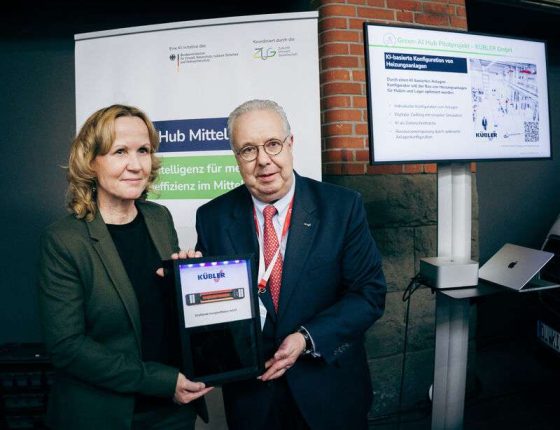"Innovations are made in the SME sector!"
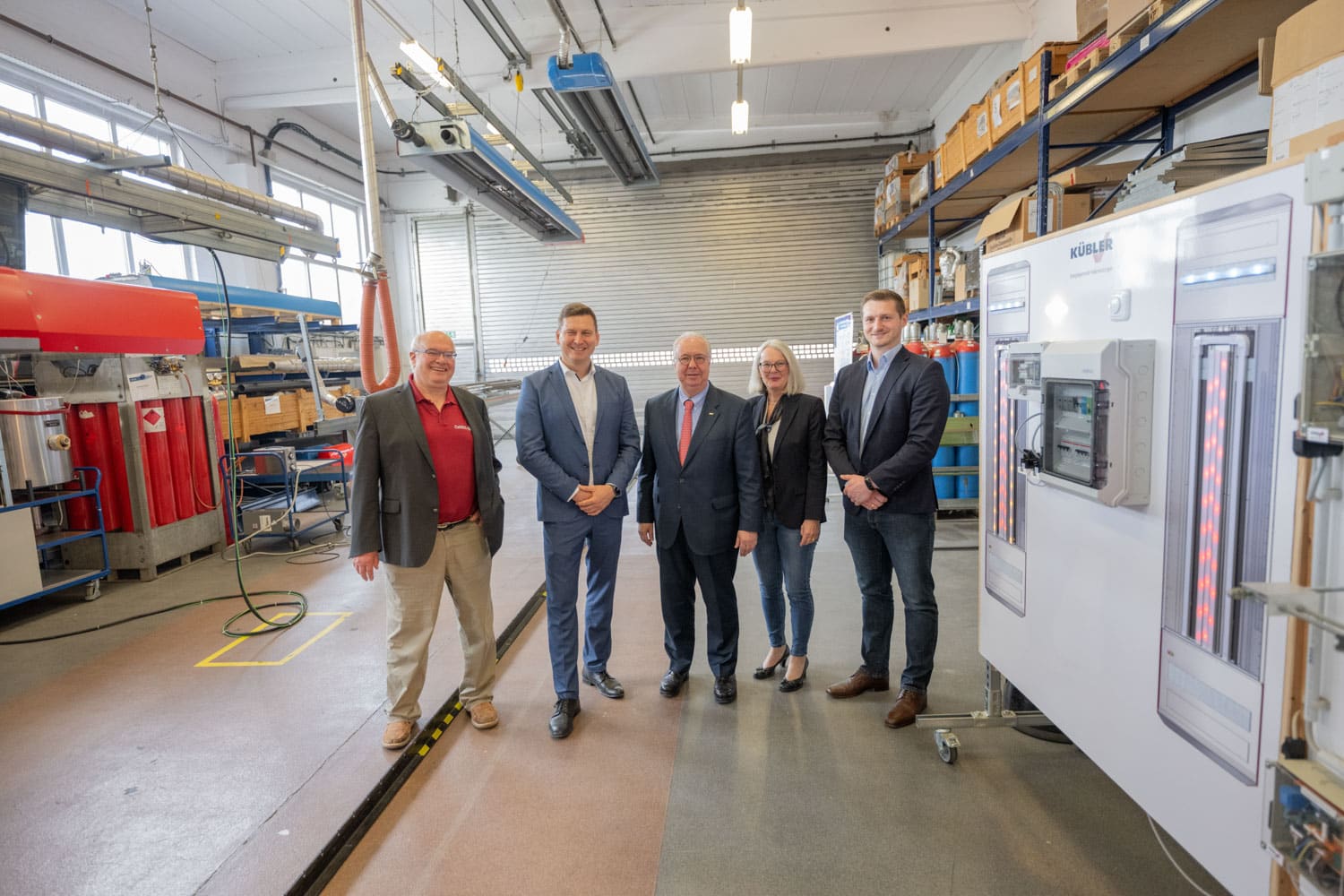
The R&D department of the hall heating specialist KÜBLER has grown to six engineers: since 2007, there have been continuous cooperation projects with renowned institutes such as CeMOS, Mannheim University of Applied Sciences (with 70 engineers the largest research center at a university of applied sciences in Germany) or the Technical University of Kaiserslautern, often funded by the AiF, for example. Tens of millions of euros have been successfully invested in the research budget in recent years - no wonder that the key innovations in the field of climate-friendly hall heating have been coming from the development center in Ludwigshafen for decades and that the company is regarded as a technology and innovation leader.
For Mario Brandenburg, Member of the German Bundestag and Parliamentary State Secretary at the Federal Ministry of Education and Research, this was the reason for the company visit to KÜBLER. But the talks were not just about "... the advertising blog for our latest innovations and AI projects", as Thomas Kübler put it. The entrepreneur was concerned with future development projects at a time when funding is becoming increasingly scarce. Dr. Steffen Manser, Team Leader for Hardware & Software Development at KÜBLER, and Prof. Dr. Matthias Rädle, Head of the CeMOS Institute at Mannheim University of Applied Sciences and long-standing research partner of KÜBLER, were also present.
When it comes to hydrogen ramp-up, everyone agrees in view of the huge PV summer electricity surplus that is rolling towards Europe: "The idea of the future is to store this PV electricity in the form of hydrogen centrally via existing gas grids or decentrally and then use it as 'green gas' for heating during slack periods and in winter," says Rädle. With enormous ecological and economic advantages, because with the new energy-flexible infrared heaters, hydrogen is converted directly into radiant heat without transformation losses and without a fuel cell - and also very cleanly without waste. Of course, the gas networks would have to be upgraded in places, but "... this is not rocket science. With today's technologies and methods, it's relatively easy to do," says Rädle, who is also head of the Steinbeis Transfer Center "Intelligent Industrial Solutions" and the KVE - Competence Center Virtual Engineering. State Secretary Mario Brandenburg: "Hydrogen is a major focus topic - especially with regard to the heat transition. I therefore consider the exchange with KÜBLER to be very important and informative."
But SMEs are facing major challenges. Innovation is also being held back by outdated standards. Innovations for decarbonization should be marketable and accessible much faster today. "This is where politicians need to provide unbureaucratic support for dissemination," says Thomas Kübler. If products that are urgently needed for the energy transition cannot be established on the market, innovation in Germany will no longer make sense. Mario Brandenburg also sees a need for action here and wants to provide support. Because, according to the MP: "Medium-sized companies are clearly the backbone of the German economy. This is where innovations are made".
-
High halls - high energy consumption. It's worth taking a closer look. If you want to know where energy is being wasted, you need transparency. A clear view of whether and where heat is being wasted and thus causing unnecessarily high costs and emissions. By leaving hall doors open for too long, for example. By heating unused hall areas. Or through suboptimal heating times. A smart tool from the hall heating specialist KÜBLER now provides clarity: the EMMA heat management system, which ensures reduced costs, less CO2 and greater efficiency in industrial heating processes.
-
The new standard heating line for high performance requirements and tight budgets.
-
"Rhineland-Palatinate is a state of innovation and future technologies - and KÜBLER GmbH in Ludwigshafen is an impressive example of this, as demonstrated not least by the four innovation awards from the state of Rhineland-Palatinate that the company has received to date. As Minister President, it makes me proud that we have hidden champions like KÜBLER in our state. They [...]
-
At the BVMUV's Future Day for SMEs on March 13, KÜBLER, the specialist for climate-friendly hall heating systems, presents the first results of the joint AI pilot project as part of the Green-AI Hub Mittelstand to Federal Environment Minister Steffi Lemke.
